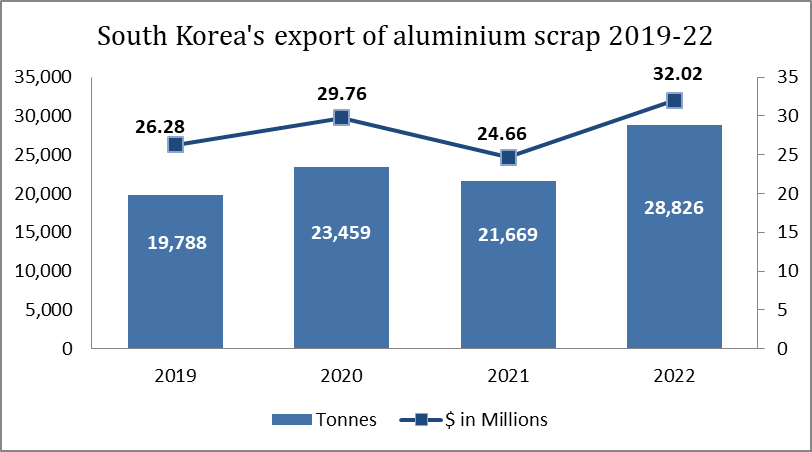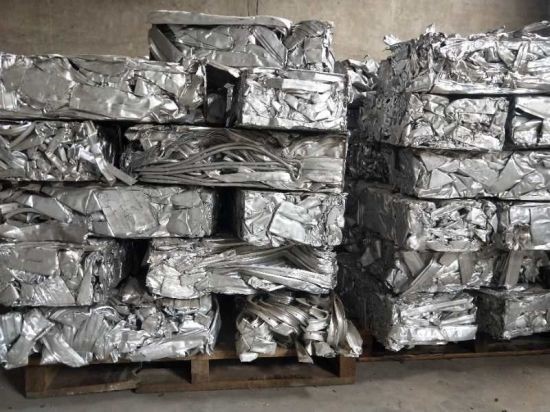

The economy of South Korea is comprised of a mixed economic system that incorporates a variety of private freedom, blended with centralized economic planning and government regulation. Following the decades of robust economic development and global integration, South Korea has become a high-technology, industrialized $2 trillion economy led by such sectors as electronics, telecommunications, automobile production, chemicals, shipbuilding, and steel. The country produces both new and old aluminium scrap, although the export volume illustrated uneven movement.

The East Asian nation on the southern half of the Korean Peninsula, South Korea exported 64,916 tonnes of aluminium scrap during 2019-21, attracting around $80.70 as revenue earnings.
In 2019, South Korea exported 19,788 tonnes of aluminium scrap, incurring a revenue inflow of around $26.28 million, whereas, in 2020, the aluminium scraps export demonstrated growth by 18.55%, as the export surged to 23,459 tonnes, counting earnings of $29.76 million.

South Korea’s export of aluminium scrap in 2021was exhibited with a downfall of 7.63%, as the export volume dipped to 21,669 tonnes, while earnings fell to $24.66 million.
The export for 2022 is analysed with a further growth by 33.02%, as the export volume is anticipated to stand at 28,826 tonnes and the earnings to shoot up at $32.02 million.

The major trading destinations for South Korea’s export of aluminium scrap are China, Hong Kong, India, Indonesia, Japan, Malaysia, Saudi Arabia, Singapore, Thailand, USA, Vietnam, etc.



Responses






